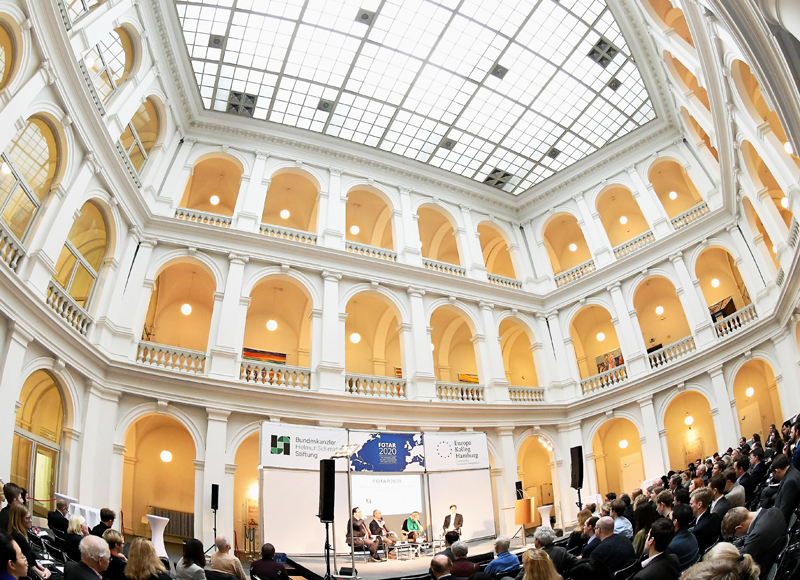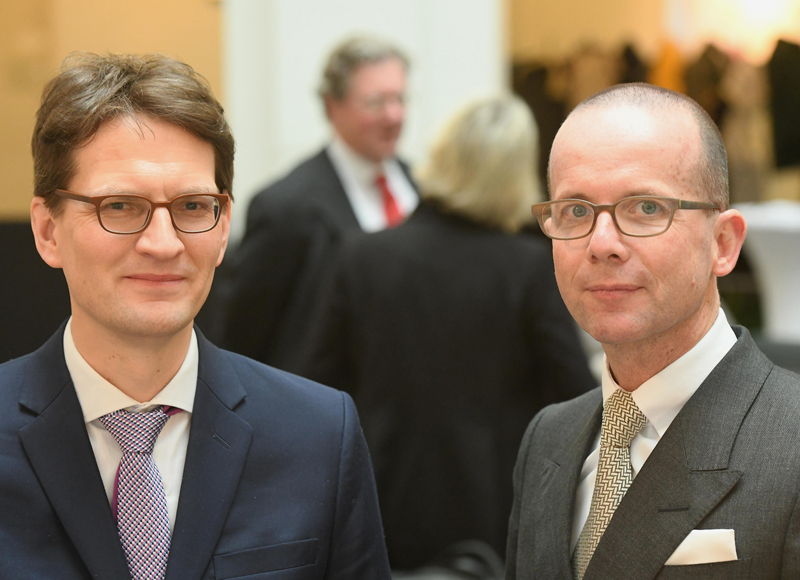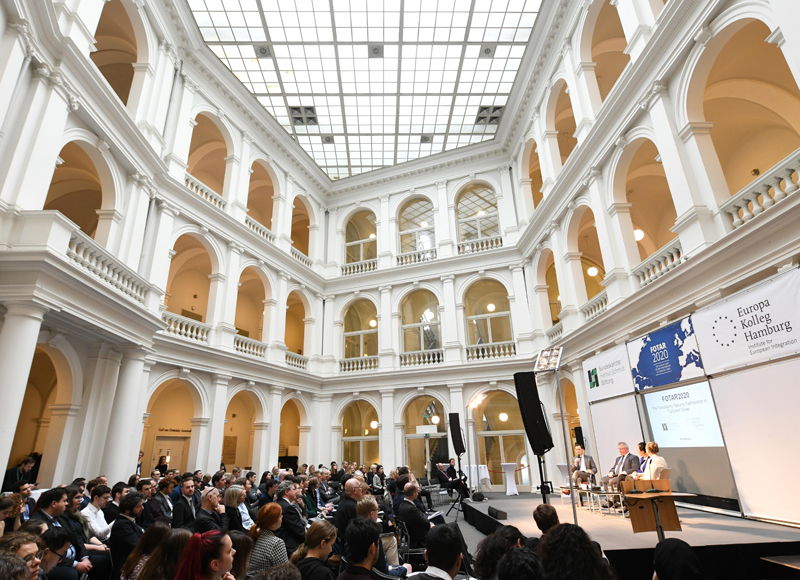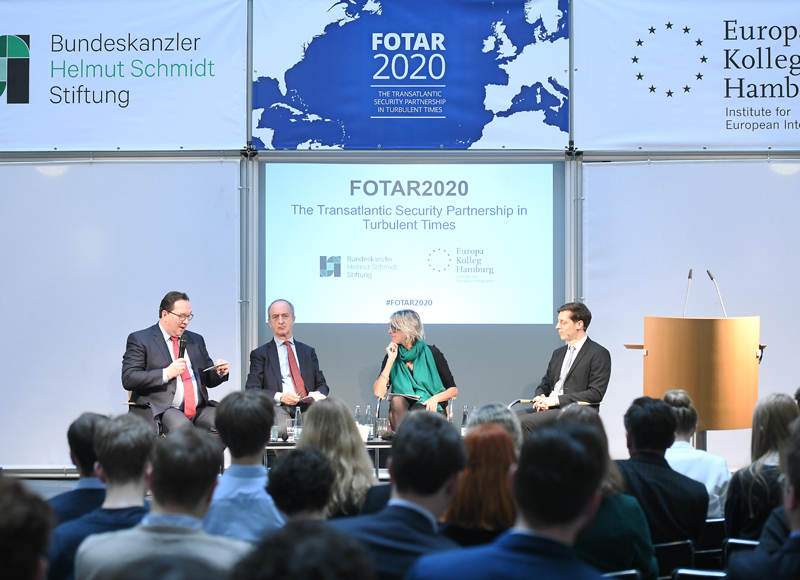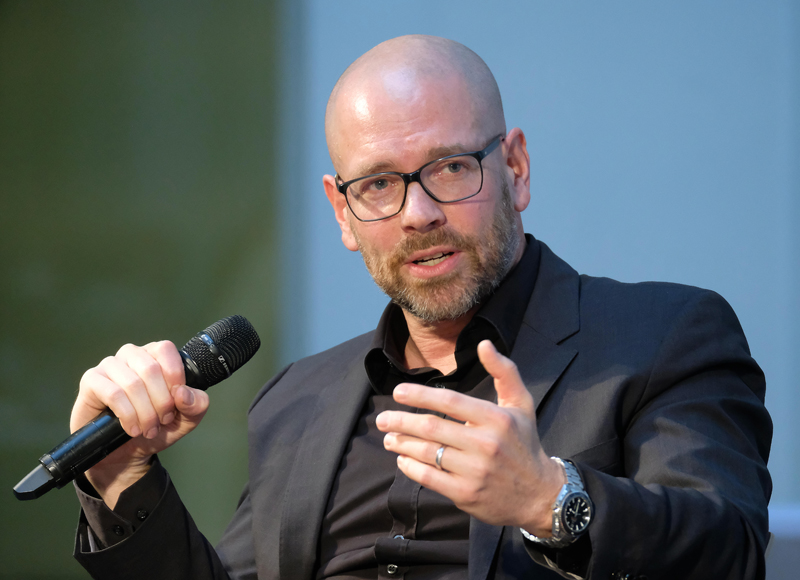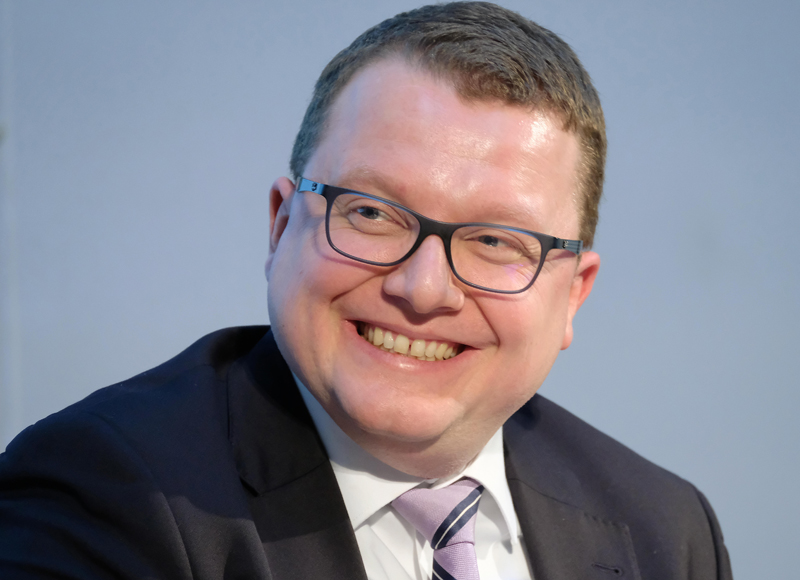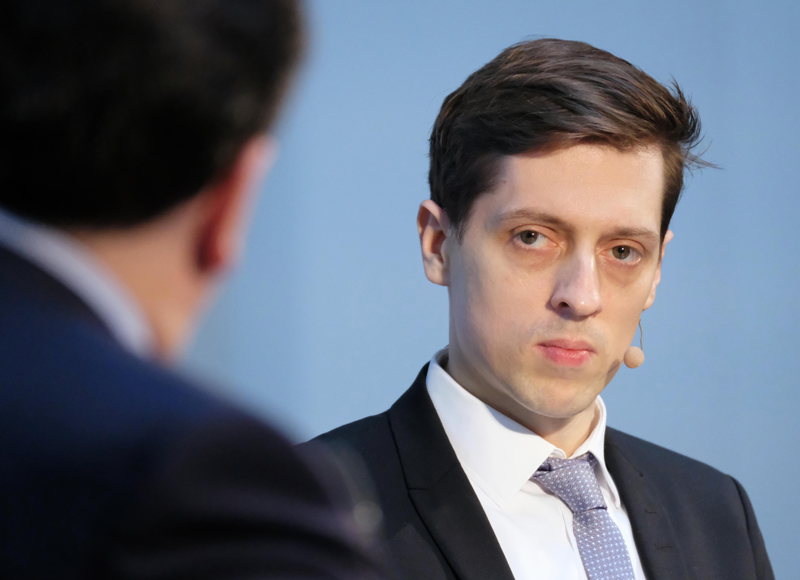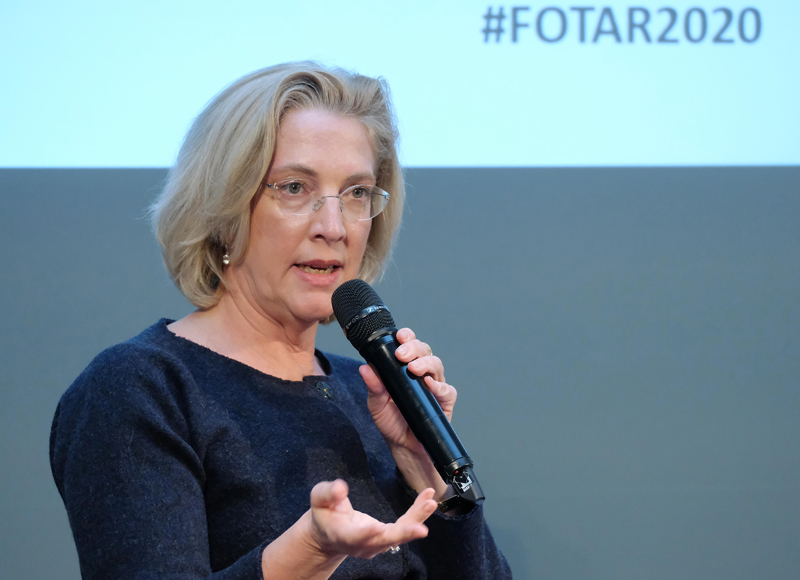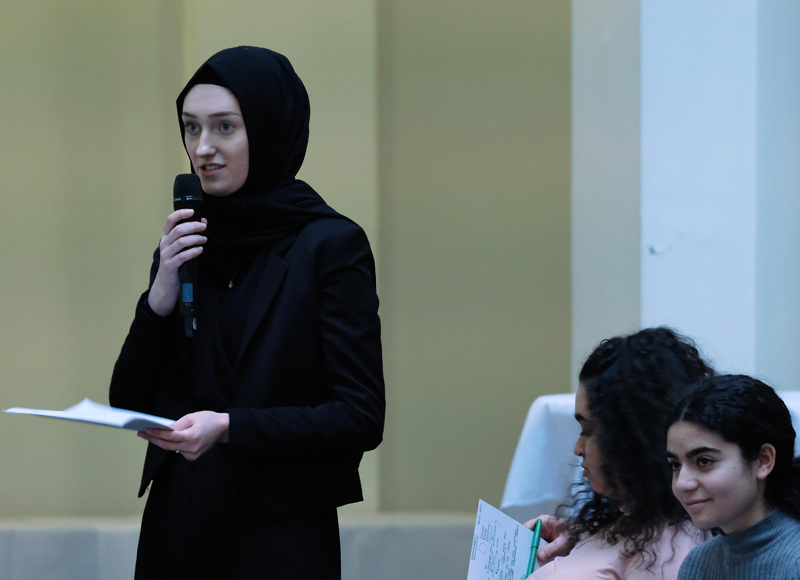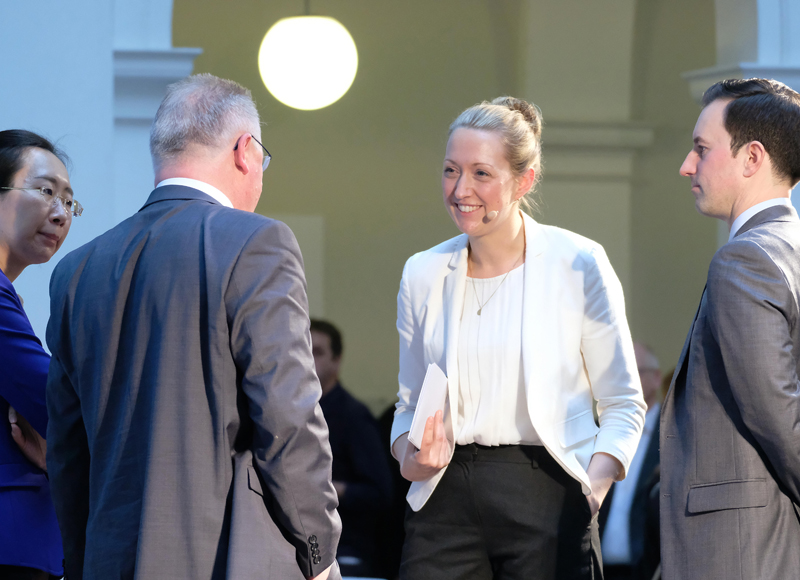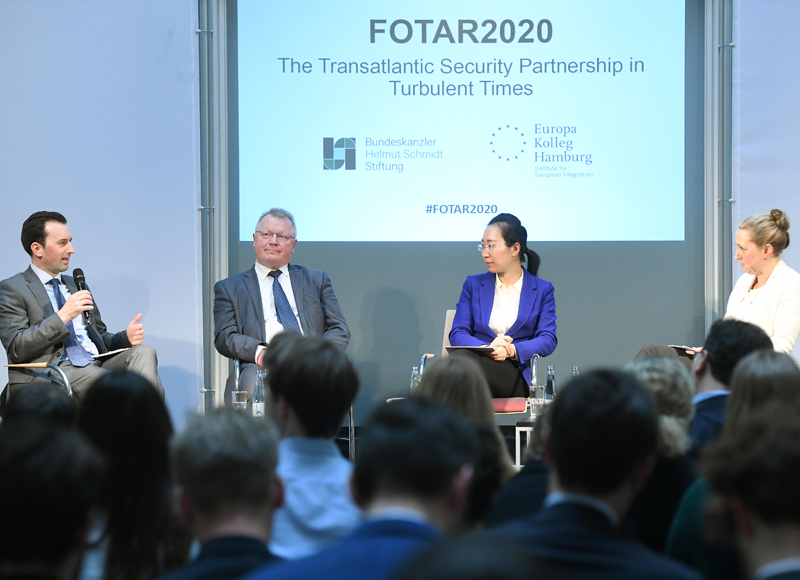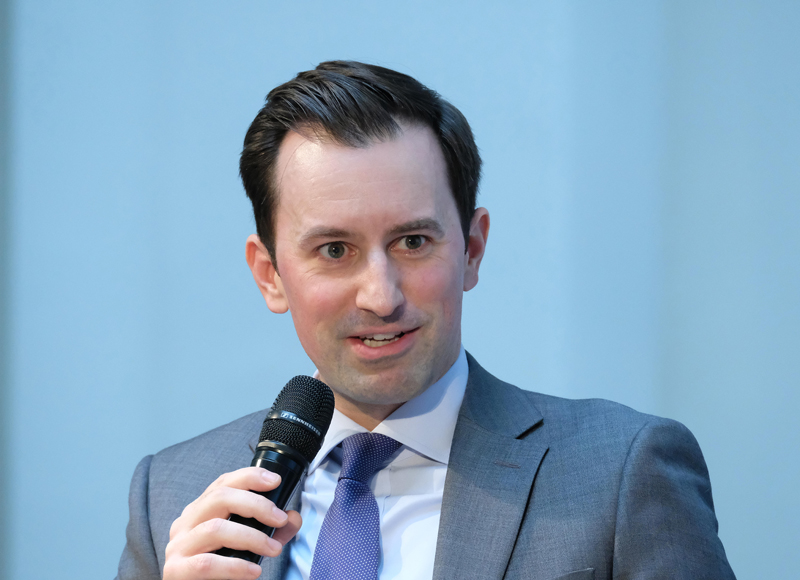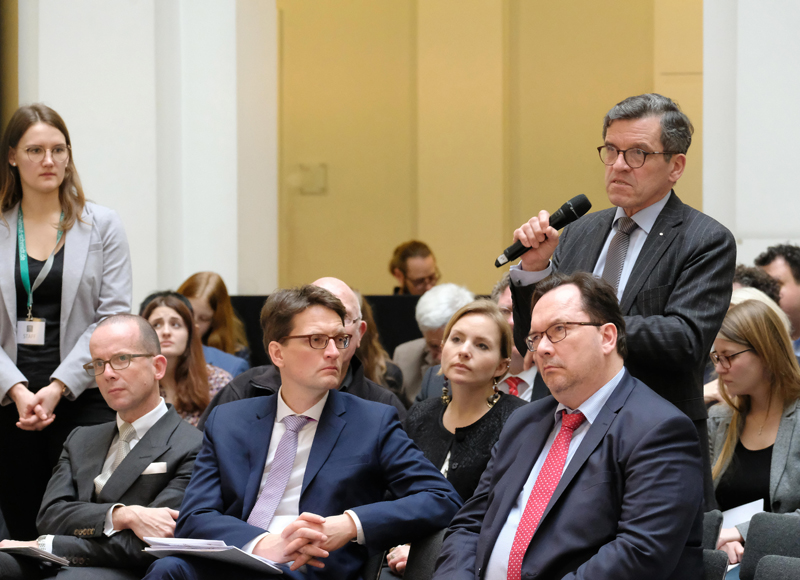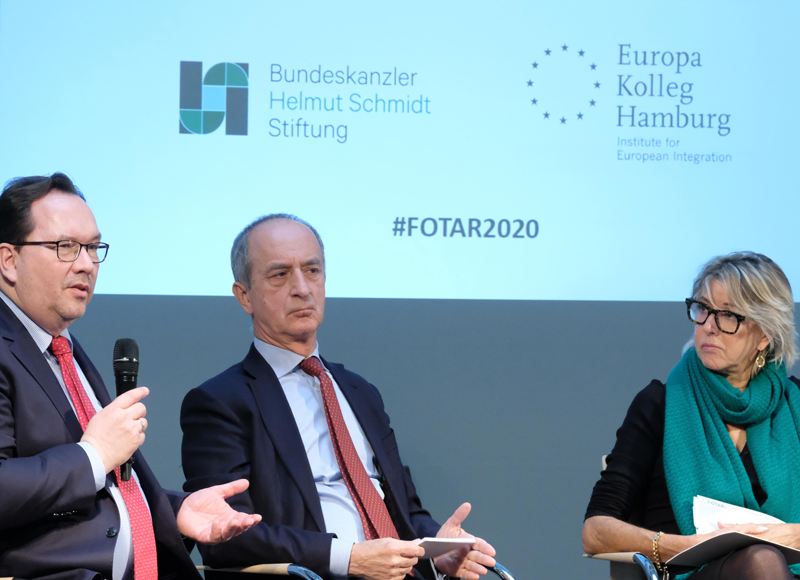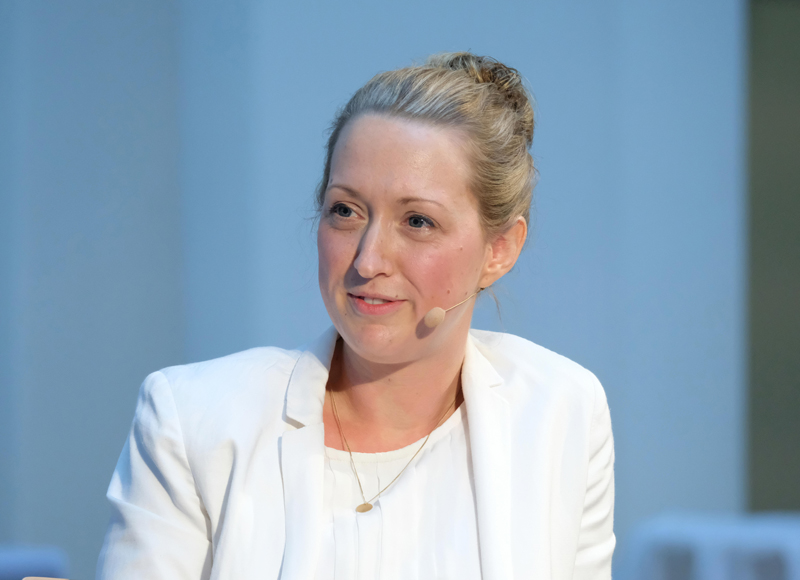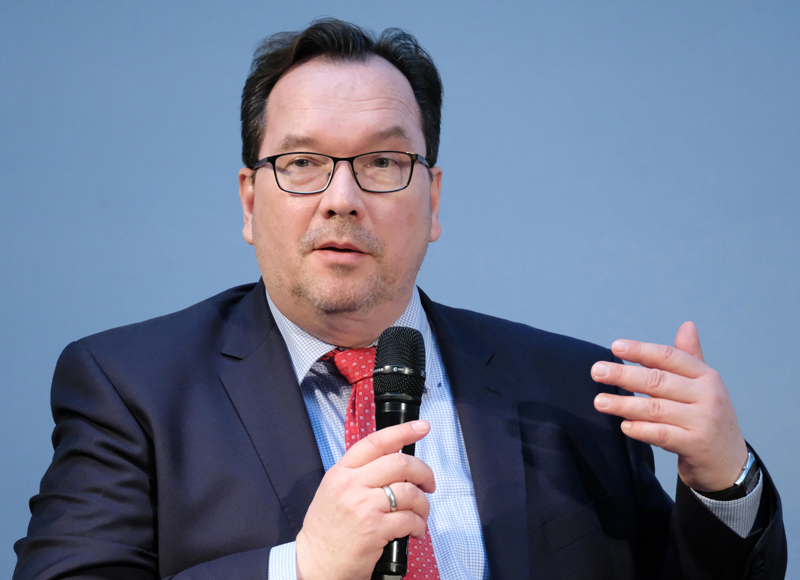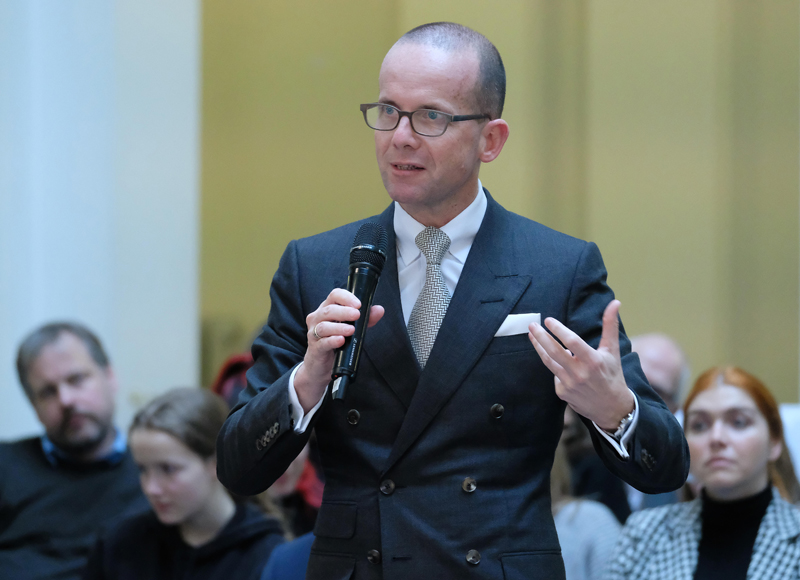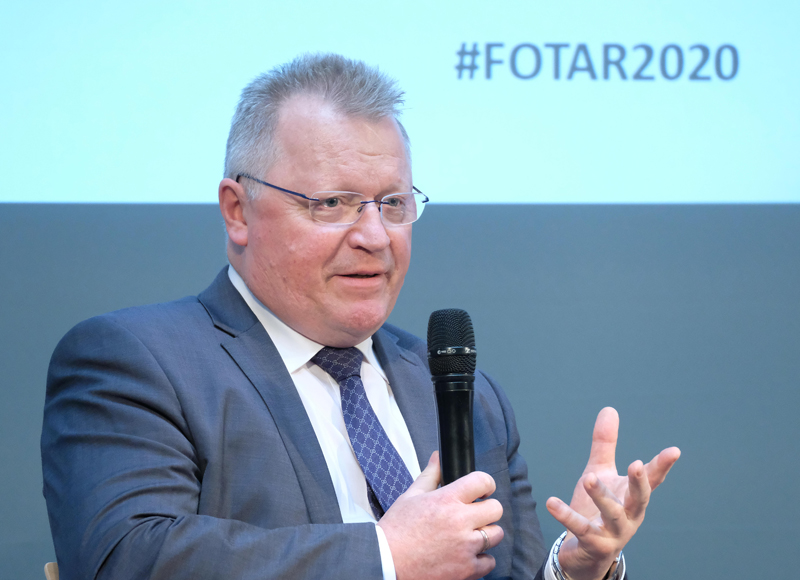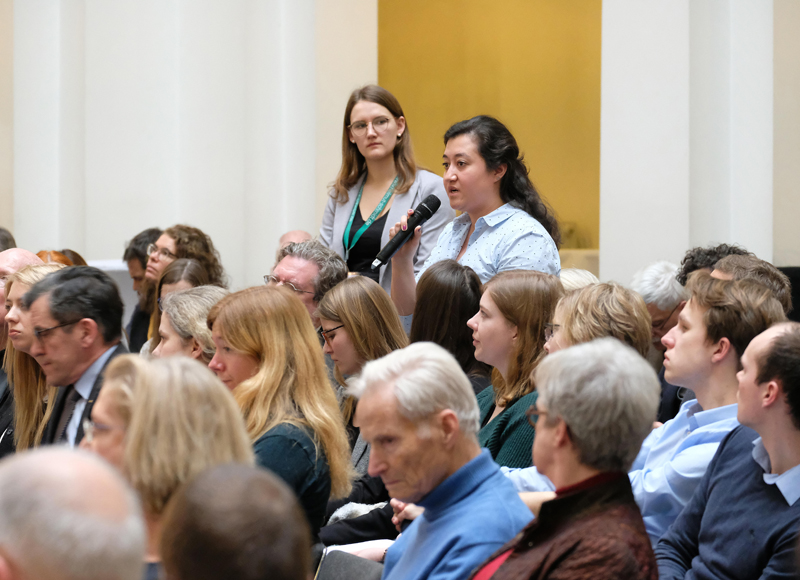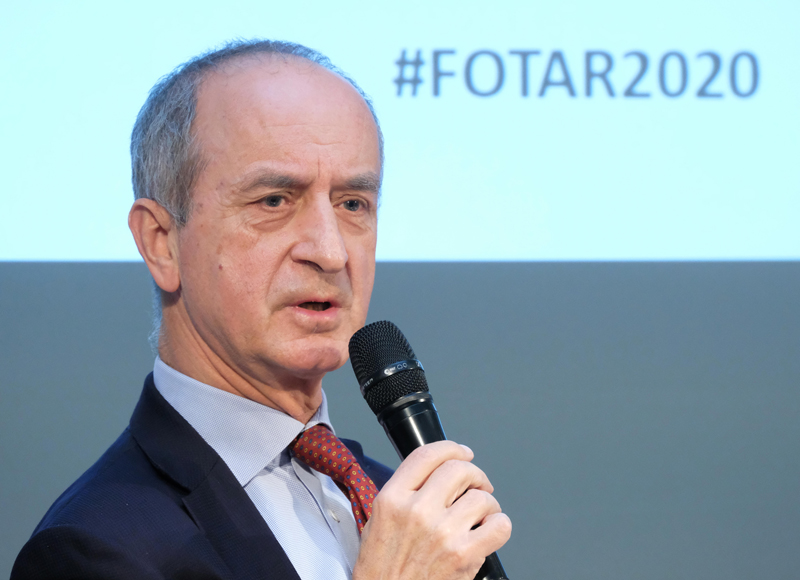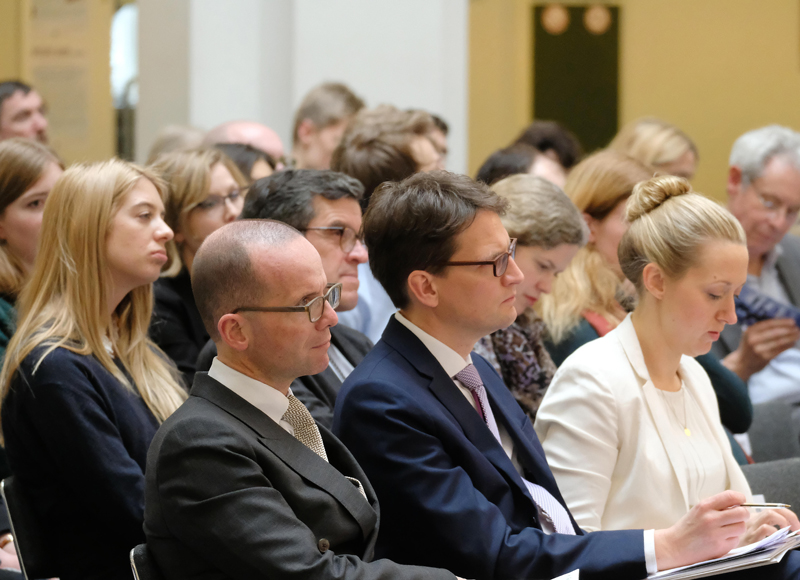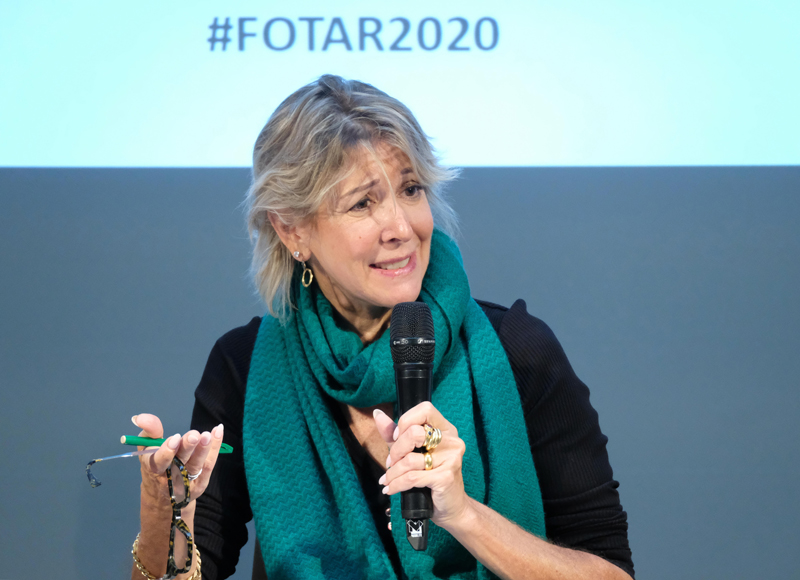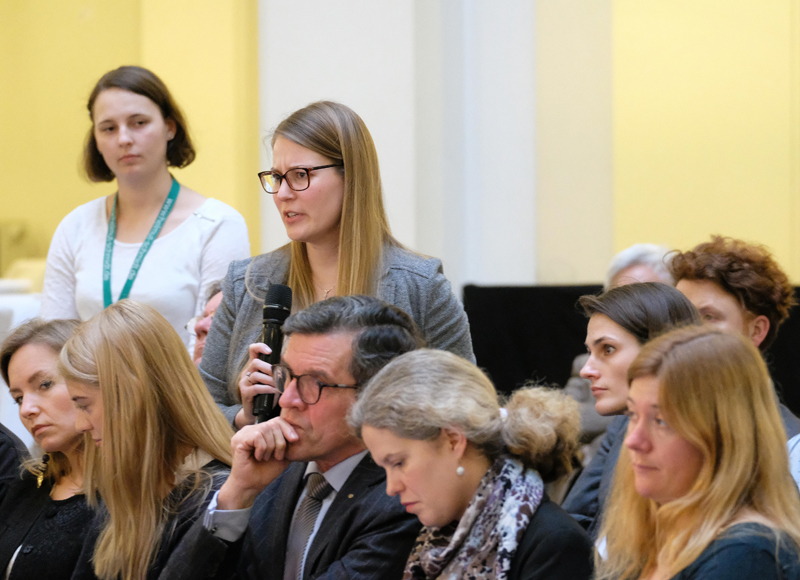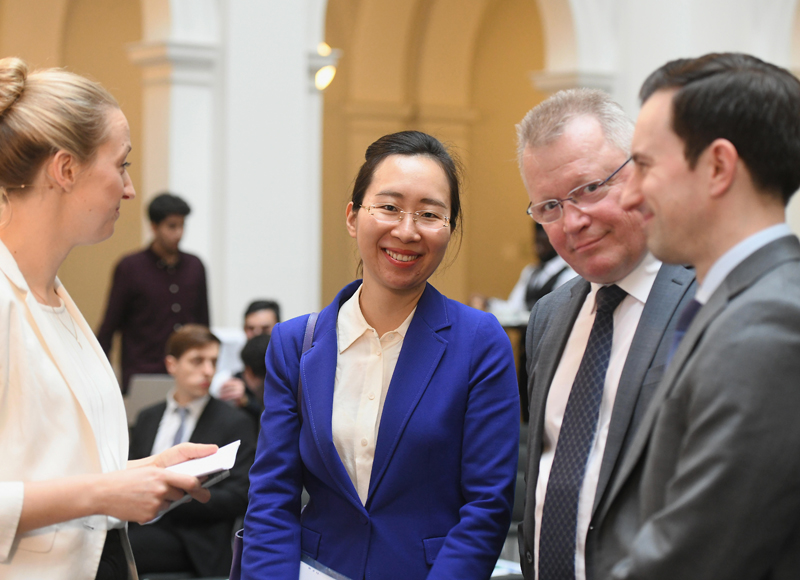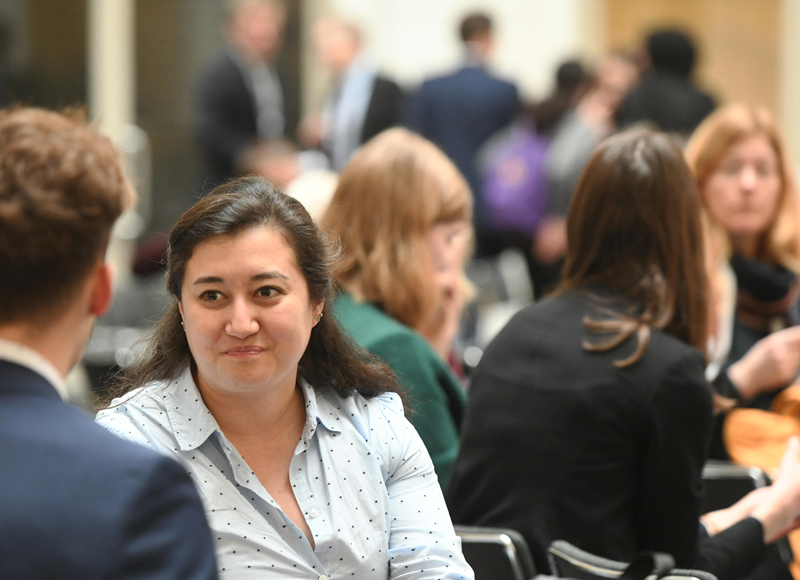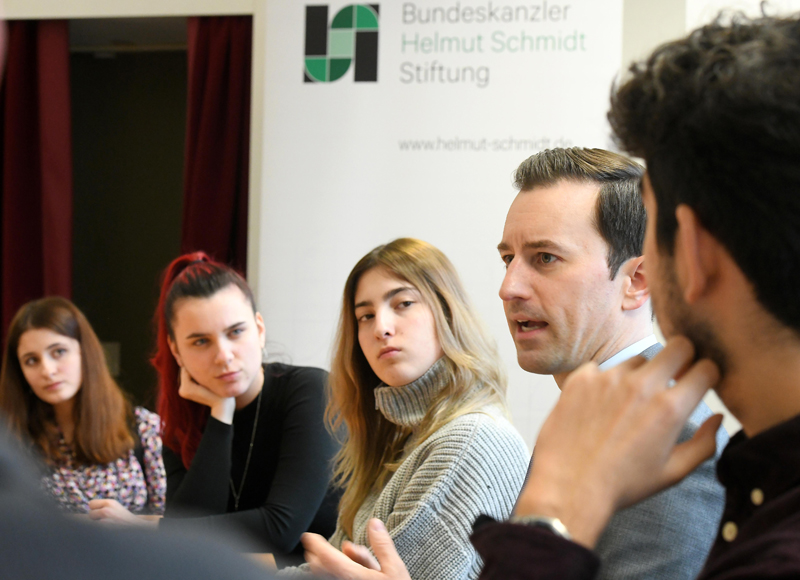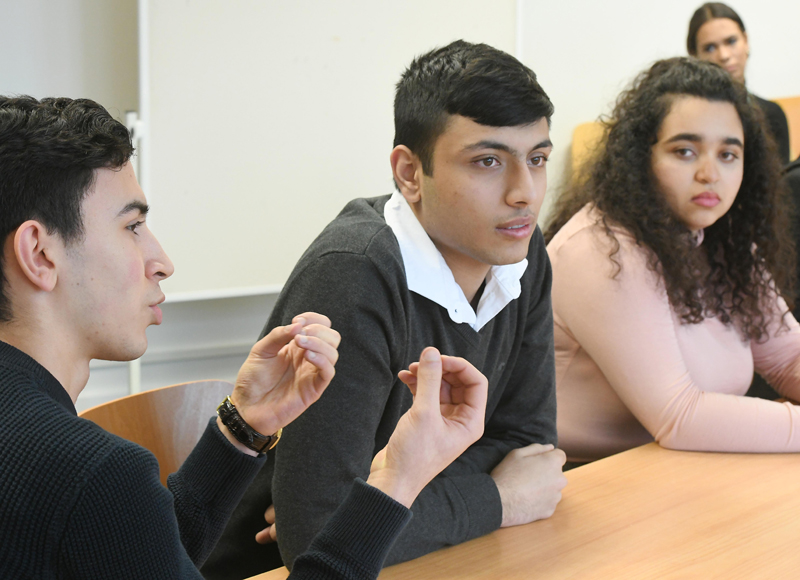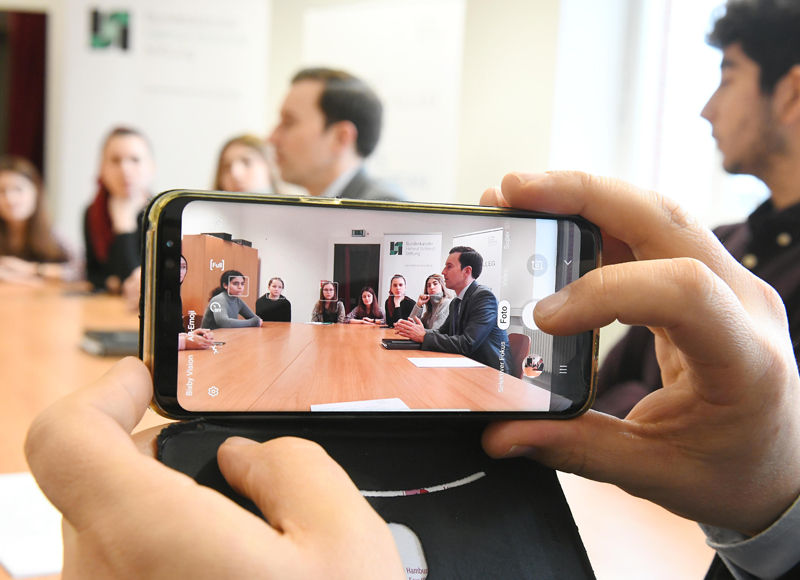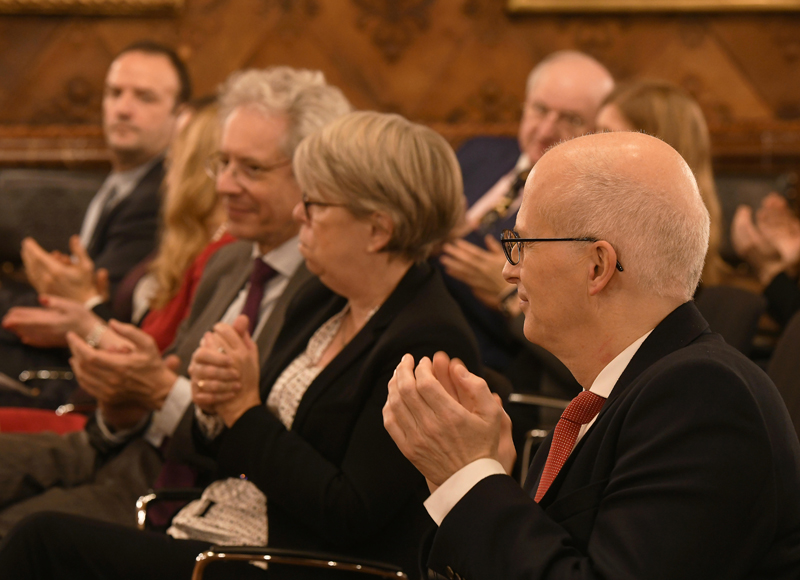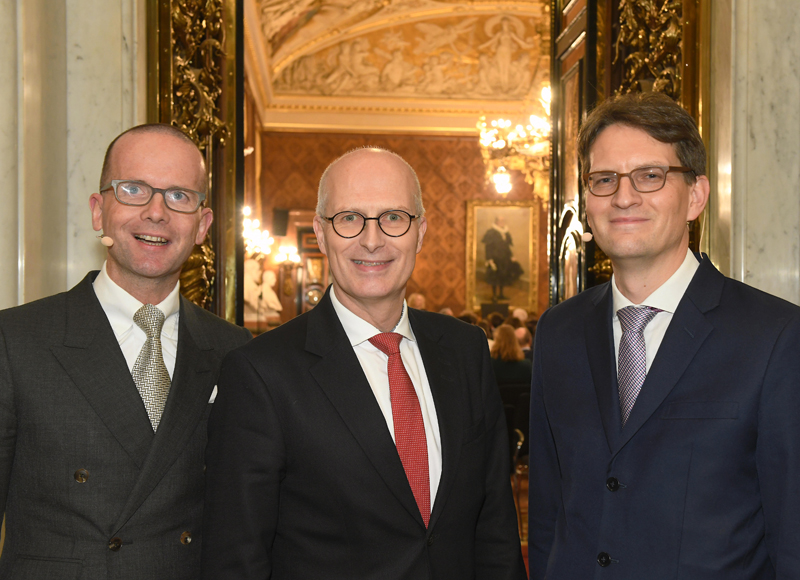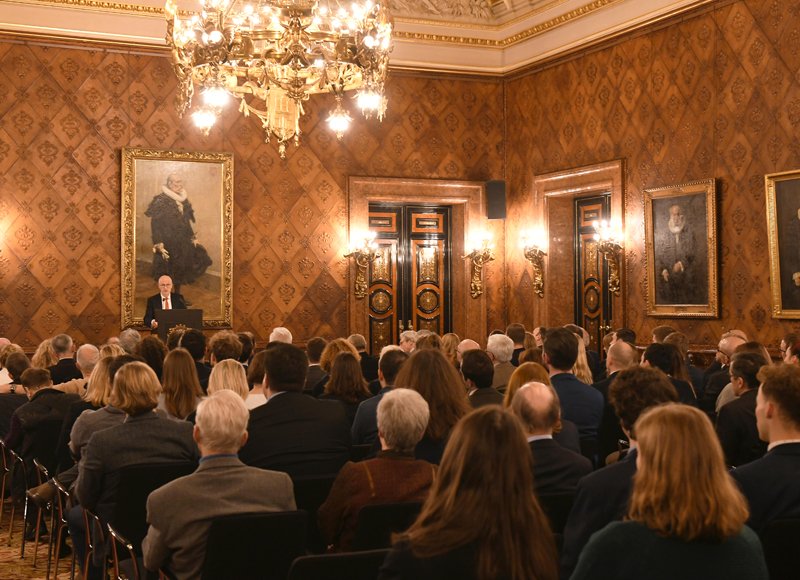FOTAR2020: The Transatlantic Security Partnership in Turbulent Times
International Conference | Hamburg, 30 Jan 2020
Author: Vieth, Jacqueline
US President Donald J.Trump has shaken up many things, changing long-held habits and customs. NATO was recently certified as being brain dead. The EU is busy with Brexit and the rise of nationalists within its member states. Does that mean it’s a bad time for transatlantic relations?
A clear signal in favour of retaining strong transatlantic relations emerged from the second FOTAR conference in Hamburg. Together with the Europa-Kolleg Hamburg, on 30 January 2020 the Bundeskanzler-Helmut-Schmidt-Stiftung held the conference “The Future of Transatlantic Relations: The Transatlantic Security Partnership in Turbulent Times”. 150 guests and 12 international experts gathered in the atrium of the Hamburg State and University Library to debate the future of global security policy. FOTAR is held in Hamburg every two years. Following “FOTAR2018: Challenges in Trade, Security and Environmental Policy” and “FOTAR2020: The Transatlantic Security Partnership in Turbulent Times”, we are currently developing initial ideas for FOTAR2022. We will keep you updated with further details.
What is the future of transatlantic relations in an era of constantly changing parameters? Professor Dr. Markus Kotzur, President of the Europa-Kolleg Hamburg, has one clear answer: “There is no clear answer”. That’s because he thinks giving an absolute, unambiguous answer would be presumptuous. Precisely for this reason, Kotzur says it’s important to talk about these pressing questions. Dr. Meik Woyke, Chairman of the Management Board and Managing Director of the Bundeskanzler-Helmut-Schmidt-Stiftung, also stressed that we live in complex times. “Helmut Schmidt was a committed European and multilateralist. His politics can serve as a compass in difficult times.”
The international community has not experienced a shift away from multilateralism just since Donald Trump took office. But since Trump became US President, even the idea of the US leaving NATO has become a major theme of debates. Could something like this really happen? And what would it mean for security structures in Europe?
Europeans are aware that there is a security problem, said Janusz Reiter, a former Polish ambassador to Germany and the United States. He believes the issue holds great potential for conflict within the EU. A particular bone of contention is who should be creating the security structures, according to Reiter. When it comes to security issues, Europeans tended to accept the EU over NATO, Reiter said. He emphasised this point: “We need the West, we need the US and Europe working together”.
But what about NATO? Danielle Pletka from the American Enterprise Institute does not have a good report card for the defence alliance. “NATO is always in crisis”, Pletka said. Her criticism: NATO is now more of an ideological alliance and less of a defence one, she added. Pletka was particularly scathing of Germany for, in her opinion, spending too little on defence. Dr. Henning Riecke had a different view of the situation. “NATO has never been stronger than it is today” and has more money than it did in the past, he said. Nevertheless, the political scientist and program director from the German Council on Foreign Relations would still like to see a higher defence budget. But he understands that it is a hard case to make: he points to the fact that Donald Trump, a relatively unpopular figure in Germany, has called for higher spending – making it difficult to convince people. Opponents are able to argue against spending more just on the basis that they do not want to be dictated to by the US President, Riecke said. This made it particularly difficult for supporters of a larger budget, Riecke added.
It’s not just the US that wants to have a say. For some years now, a new player has had a seat at the international table and is set to play an ever greater role. How should Europe and the US respond to China? “It’s good that we’re even talking about it. That wasn't the case for a long time”, explained Zachary M. Hosford. He said there was still a lot to learn. The Deputy Director of the Asia Programme at the German Marshall Fund of the United States gave the example of still trying to find out what the new Belt and Road Initiative actually means in detail.
More than a hundred countries are involved in the infrastructure project that the Chinese government has been advancing since 2013. It is seen as the biggest such project in the world. Hosford fears that countries such as Sri Lanka have become too dependent on China and have lost their independence. But how can the West react to the development? China “couldn't care less” about the fact that Europe and the US had doubts about the project, said Prof. Dr. Eberhard Sandschneider, a China expert and Professor at Freie Universität (FU) Berlin. That’s because, in his opinion, the project will be a success – something that had been clear from the outset. “Unsuccessful projects are simply stripped from the programme”.
Sandschneider said it’s less clear how the Chinese leadership is handling the novel coronavirus outbreak. The party needs to prove that it can effectively deal with the outbreak, he added. If it can’t, there is the risk of an outburst of fury from the Chinese population, Prof. Dr. Sandschneider said. “The crisis is clearly revealing weak points within the central government”, agrees Dr. Yu Jie from the Chatham House think tank in London.
Weaknesses in online services are also becoming evident – an often underestimated problem. That’s because cybersecurity has long been neglected. For too long? “We took far too long to talk about the problems”, said Melissa Hathaway in her criticism of the lax handling of online crime, insecure products and vulnerable infrastructure. Even today, we’re far from an optimal and comprehensive approach, the cybersecurity expert said. In the US, for example, the focus is almost solely on the security of the 2020 presidential election, with other issues such as the security of the financial markets receiving little attention.
Prof. Dr. Robin Geiß was more optimistic: “in the long term, we’ll get better at handling the threats”. Of course threats exist, but we will learn how to deal with them, said the Director of the Glasgow Centre for International Law and Security. Wolfram von Heynitz pointed out that cyberspace is no longer unregulated in the way that was always claimed in the past. “All international laws and norms also apply online”, said the Head of Cyber Policy Coordination at the German Federal Foreign Office. But there were doubts about how these laws would be complied with.


